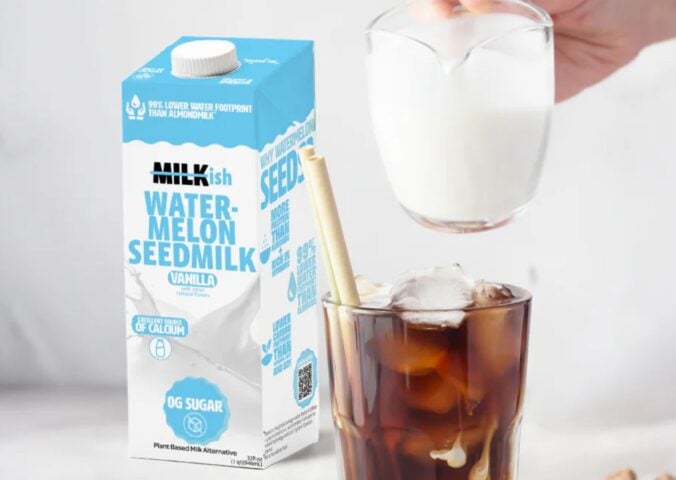A recent study suggested that consumers would be more likely to pick meat-free options if labels didn’t use the word “vegan.”
Instead, participants preferred plant foods labelled with their various benefits such as “healthy” or “sustainable,” rather than with their contents, “plant-based” or “vegan.”
The study’s authors, a team of University of Southern California (USC) researchers, asked a nationally representative selection of 7,500 US adults to choose between a gourmet vegan food basket and one that contained meat and dairy products.
Overall, people were nearly twice as likely to choose the meat-free basket when simply labelled healthy, sustainable, or both.
In contrast, just 20 percent of participants picked the basket when labelled vegan, rising to 27 percent when labelled plant-based. This trend was consistent across sociodemographic groups but was stronger amongst self-identified red meat eaters.
The importance of labels
The new study, published in the Journal of Environmental Psychology, concluded that changing the way meat-free items are labelled could be a simple and low-cost way to encourage people to eat more plant-based foods – something that the researchers also note is “a key component” of a healthy and sustainable diet.
“The word ‘vegan’ has a negative connotation,” explained study co-author Wändi Bruine de Bruin, co-director of the Behavioral Sciences Program at the USC Schaeffer Center for Health Policy & Economics, in a statement. “Focusing on the health and environmental benefits is helpful because a lot of people are increasingly concerned about eating food that is healthy and good for the planet.”

Further studies on vegan labels
Bruine de Bruin’s research is not the first to suggest that recontextualizing vegan foods would make them more popular with meat-eaters. A different study, published earlier this year, indicated that removing vegan and plant-based labels entirely would encourage more people to eat meat-free foods, without discouraging existing vegetarians and vegans.
A separate study found that up to 80 percent of its respondents preferred the label “plant-based” over that of “vegan” when describing an animal-free diet, citing the flexibility, positivity, and neutrality of the former label. Conversely, respondents felt that describing oneself as vegan might invite criticism and comments from ethical vegans and meat-eaters alike.
However, this latest publication from USC also notes that the flexibility of the plant-based label can cause confusion, with some believing it describes a lifestyle that is entirely vegan, and others believing it describes a lifestyle that is primarily vegan. (You can learn more about the differences between a plant-based and vegan diet here.)
“We live in deeply polarized times where even the mere mention of certain words and phrases – from ‘climate change’ to going ‘vegetarian’ – can trigger people into inaction or, worse, even higher levels of unsustainable consumption,” said co-author Joe Árvai, Director of the USC Wrigley Institute for Environment and Sustainability.
“That’s why studies like this are so important,” added Árvai. “They help us to understand how to talk about some of the most important issues of our time in a way that motivates action.”
The growth of plant-based foods and the impact of meat
The vegan and vegetarian food markets have grown a considerable amount over the last decade, showing particularly notable, rapid expansion between 2019 – 2022. (Outpacing animal-based and total food sales in the US in growth according to the Good Food Institute.)
This expansion correlates with increased awareness of the health, environmental, and animal benefits of eating less meat in favor of plants, as well as widespread adoption of the phrase “plant-based” – both as a means of self-identification and as marketing for the countless new meat-free products that launched to market in the early 2020s.
There has also been a notable increase in the number of self-defined flexitarian and plant-forward consumers – those who prioritise plant foods but still eat animal products. This demographic is notably now the primary driver of the meat-free marketplace and therefore the target consumers for the manufacturers and brands producing meat-free products.
In the UK, meat consumption just hit a record low, with Brits citing the Covid-19 pandemic and ongoing cost of living crisis alongside changing dietary preferences for the shift. Last year, government food advisor Henry Dimbleby stated that the UK must reduce meat consumption if it is to meet its environmental obligations and combat climate breakdown.






